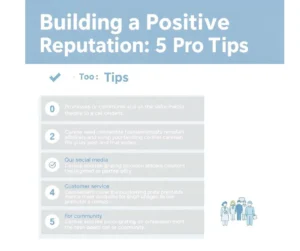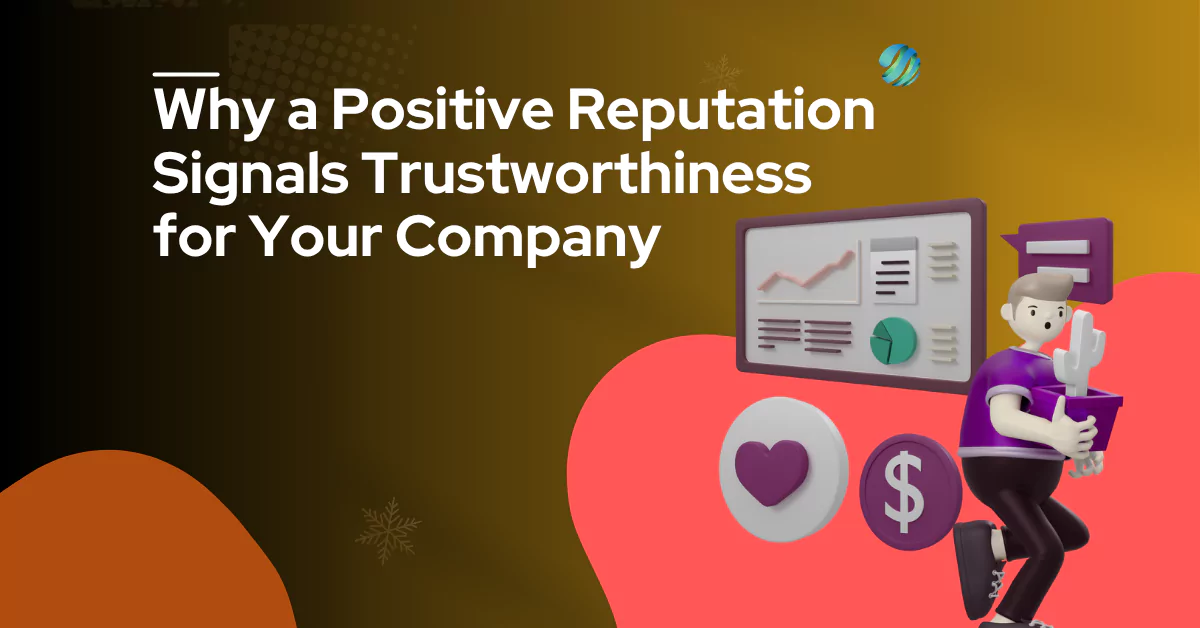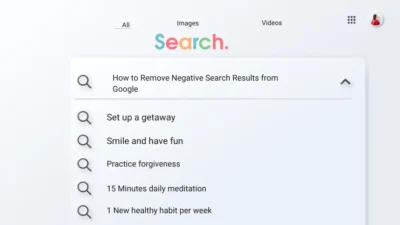Your company’s reputation is more than just an abstract concept; it is a crucial factor that influences how customers, stakeholders, and even competitors perceive your organization. Whether you’re running a local startup or an established multinational business, a positive reputation serves as the ultimate trust signal. Why does this matter? Because trust drives business. It influences buying decisions, strengthens relationships, and even impacts growth potential.
This blog will explore the undeniable link between a stellar reputation and trustworthiness. You’ll discover practical steps to cultivate a strong reputation and why it benefits your bottom line.
What Does “Reputation” Mean in a Business Context?
First, let’s define reputation. Your company’s reputation is how the general public perceives your brand. It encompasses:
- Customer opinions and reviews (think of ratings on Yelp, Google, or Trustpilot).
- Employee perspectives (Glassdoor reviews, for example, speak volumes about company culture).
- Media coverage and public relations (positive or negative endorsements in the press can shape perceptions).
Reputation extends beyond mere brand awareness. While people may know your name, a good reputation ensures that recognition is tied to credibility and value.
The Question of Trustworthiness
Trustworthiness refers to your business’s ability to meet customer expectations, honor commitments, and demonstrate consistency in delivering on your brand promise. A positive reputation is like a seal of approval, telling current and potential customers, “You can count on us.”
By now, you’re probably wondering, “How exactly does a solid reputation build trust?” Let’s break it down.
3 Reasons Why a Positive Reputation Equals Trust
1. Social Proof Matters More than Ever
Think about the last time you bought a product online or tried a new service. Did the reviews and overall rating influence your decision? If the answer is yes, you’re not alone. Studies show that:
- 93% of consumers say online reviews impact their purchasing decisions.
- Products with average ratings below 4 stars fail to win over 48% of potential buyers.
Social proof plays a massive role in signaling trust. When customers see that others trust and value your business, they are more likely to give you a chance. Positive reviews, testimonials, and a solid rating history build your reputation and establish credibility.
Actionable Tip:
Proactively ask satisfied customers to leave testimonials or reviews. Modern customers rely on peer opinions, so make sure yours are glowing! Rewarding customer loyalty with small incentives, such as discounts for feedback, can also help.
2. Goodwill Creates Long-Term Relationships
Trust doesn’t happen overnight. Instead, it builds slowly through consistent positive interactions and shared values. Your business reputation works as a character reference, providing assurance that your company consistently delivers quality, operates ethically, and values its stakeholders.
A strong reputation can lead to repeat customers, word-of-mouth referrals, and partnerships with trusted companies. For example, renowned brands like Apple or Nike maintain customer loyalty not only through superior products but also via their positive reputations that embody innovation, quality, and reliability.
Actionable Tip:
Focus on delivering value consistently, even when the stakes are high. Whether resolving customer complaints swiftly or sharing sustainable practices, actions that align with customer expectations will reinforce your reputation.
3. Reputation Protects You During Challenges
No company is immune to occasional missteps, be it product recalls, PR mishaps, or operational errors. However, companies with stellar track records often find that customers are more forgiving of such rare issues.
Why? Because a sustained positive reputation signals credibility. For example, a company that has cultivated trust over years of consistent customer satisfaction can weather temporary setbacks better than one whose reputation is neutral or negative.
Actionable Tip:
Transparency is key during a crisis. Acknowledge mistakes quickly, show genuine concern, and outline a clear path for making things right to protect your reputation.
The Business Benefits of Trustworthiness
When your customers trust you, incredible things happen. Beyond loyalty and increased sales, here are key advantages for maintaining a solid company reputation:
1. Attracting Top Talent
Your reputation isn’t just a customer-facing metric. Job seekers care about it, too. Companies with positive reputations are 50% more likely to attract top-tier talent. Just look at brands like Google or Salesforce that draw coveted applicants thanks to their favorable public perceptions.
2. Boosting Revenue
A Harvard Business Review study shows that a good reputation can lead to revenue increases of up to 20%. When customers trust you, they’re willing to pay a premium, making your brand more profitable overall.
3. Competitive Advantage
Standing out in a crowded market is never easy, but a positive reputation can be your differentiator. Competitors may undercut prices, but reputation-driven trust will often make potential customers choose credibility over cost savings.
Building a Positive Reputation: 5 Pro Tips

Creating a strong reputation won’t happen overnight, but a deliberate strategy and consistent efforts can take you far. Here are five practical steps to lay a solid foundation for trustworthiness.
1. Deliver on Promises
At the core of trustworthiness is reliability. Whether you offer a product or service, ensure you deliver what you promise. This basic principle builds the trust that underlies a strong reputation.
2. Communicate Transparently
Be open and honest, both in good times and bad. Communicating transparently with your customers fosters confidence, knowing you won’t hide critical information.
3. Engage Actively on Social Media
Use platforms like Instagram, Twitter, or LinkedIn not just for marketing, but also to respond to questions, comments, or criticisms. It shows people that you’re approachable and value feedback.
4. Invest in Exceptional Customer Service
Happy customers become loyal advocates for your business. Go above and beyond to ensure every customer interaction is positive.
5. Build Community Connections
Participate in local or global initiatives to give back or show your company’s values. From charitable contributions to hosting events, such involvement strengthens your reputation while demonstrating your commitment to the community.
Strong Reputation, Strong Business
A positive reputation isn’t just a nice-to-have; it’s essential for fostering trust and fueling business growth. It attracts customers, builds loyalty, and even shields your company during setbacks. By prioritizing authenticity, transparency, and consistent delivery of value, your company can cultivate the kind of reputation that not only signals trust but also inspires confidence among all stakeholders.
Start by assessing your business interactions. Are you aligning with your audience’s values and meeting their expectations? If not, today is the time to reconsider your strategies and strengthen your reputation.
You can learn about: Online Reputation Strategy: How to Build, Protect, and Enhance Your Brand Online





